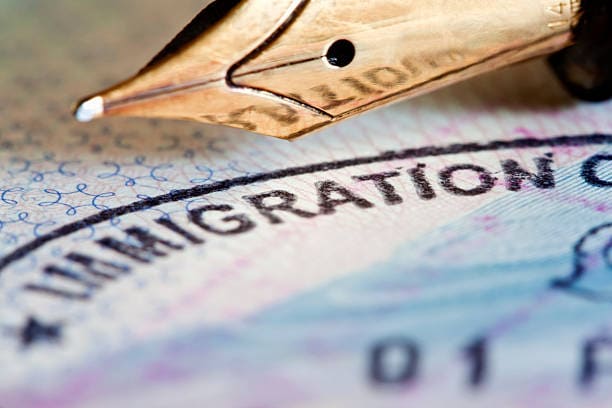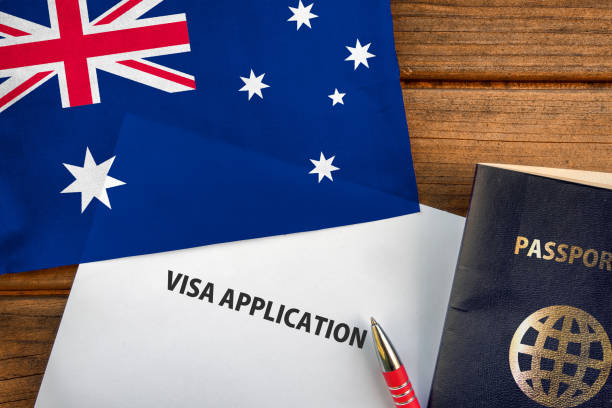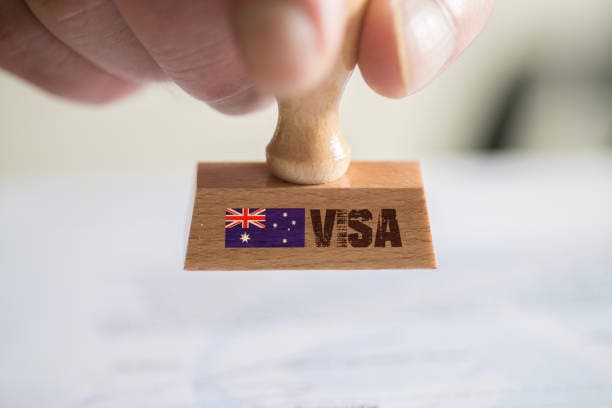A substantive visa is a type of visa that the Australian government grants to individuals who wish to visit or stay in the country for a specific purpose. This can be for work, study, or family-related reasons. It is different from a bridging visa. A bridging visa is a temporary visa that allows a person to stay in Australia while they wait for the Department process their substantive visa application.
All temporary visas, permanent visas, skilled visas and student visas are substantive visas. Moreover, in simple terms, any visa apart from a bridging visa, enforcement visa or criminal just visa is a substantive visa in Australia.
Essentially, substantial visas are any visas that fall under these categories:
- Working visas;
- Partner visas;
- Protection visa;
- Visitor visa; and
- Student visas.
Two Examples of Substantive Visa in Australia
Student Visa: Subclass 500
In Australia, the Subclass 500 visa is the primary type of substantive visa for international students who wish to study in the country. This visa allows students to stay in Australia for the duration of their course, work part-time, and travel in and out of the country as they please.
To be eligible for a Subclass 500 visa, a registered Australian educational institution must first accept an individual to undertake a full-time course of study. The individual must also meet certain health and character requirements, and provide evidence of financial support.
The application process for a Subclass 500 visa involves several steps, including submitting an online application, providing supporting documents, and attending a visa interview if required.
The Australian government assesses each application on a case-by-case basis, taking into account factors such as the individual’s intended course of study, financial situation, and previous immigration history.
If the visa application is successful, the individual will be get a Subclass 500 visa and can begin their studies in Australia. However, it is important to note that the visa has certain conditions attached, such as maintaining enrolment in a registered course of study and not working more than the allowable number of hours per week.

Skilled Nominated Visa: Subclass 190
The Skilled Nominated Visa Subclass 190 is a type of visa issued by the Australian government for skilled workers who are nominated by a state or territory government agency. This visa is for individuals who have the necessary qualifications, skills, and experience to help address skill shortages in specific regions of Australia.
To be eligible for a Skilled Nominated Visa Subclass 190, applicants must first submit an Expression of Interest (EOI) through the SkillSelect system and receive an invitation to apply.
They must also have a relevant occupation listed on the skilled occupation list and meet the required points threshold based on factors such as age, language proficiency, work experience, and education.
Once the application is submitted and approved, the Skilled Nominated Visa Subclass 190 allows the visa holder to live and work in Australia permanently. It also enables the visa holder to apply for Australian citizenship, sponsor eligible family members for permanent residency, and travel in and out of Australia as they please.
It is important to note that each state and territory has its own specific requirements for nominating applicants for the Skilled Nominated Visa Subclass 190. This may include having specific skills and qualifications in high-demand industries or occupations within that region.
What is Criminal Justice Visa and Enforcement Visa?
A Criminal Justice Vice (CJV) is a temporary visa meant for any party who has witnessed a crime, or has been accused of committing a crime while in Australia. This special visa is available so the party can lawfully remain in Australia during the justice process.
An Enforcement Visa is similar to a CJV in that they are meant for parties who need to remain in Australia legally because they await trial on suspicion of crime committed in Australia.
Read more about enforcement visas here: https://jbsolicitors.com.au/enforcement-visas-migration. Essentially this allows the Department to issue visa to allow non-citizens to remain in Australia.

Seeking Advice from Immigration Lawyers Sydney
If you are seeking to apply for a substantive visa in Australia, it is important to obtain professional advice. This can help you understand all your options. Australian migration law can be complex. The requirements for each visa subclass may differ.
You must stay aware of all requirements and complete each step thoroughly so as to procure your substantive visa without any delays.
To read more about Australian bridging visas and the various types such as bridging visa E, visa B, bridging visa D and bridging visa A click here. Bridging visas are applicable when your current substantive visa ceases to be valid, and until you obtain your next visa. It allows parties to stay in Australia lawfully.
You can make an application for a new bridging visa if you want to change your bridging visa. Bridging visa a (BVA) and Bridging Visa B BVB are common types of bridging visas that visa holders obtain. Substantive visas generally have a visa expiry date.
Our migration law solicitors have the experience of assisting applicants with a variety of visas. We can assist with the application of partner visas, work visas, sponsored visas, student visas and permanent visas. If you wish to seek more information on this, you can visit our immigration law blog page.
For more information, do not hesitate to contact our team of solicitors. Speak to our lawyers today.
